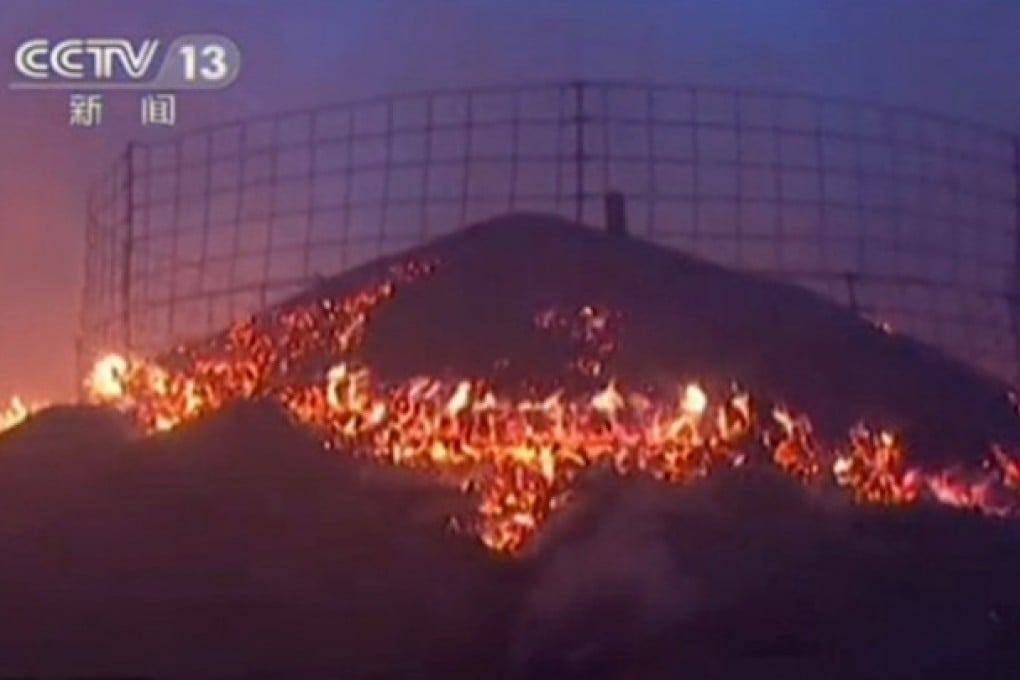Official cause of blaze at Sinograin plant in Heilongjiang under question
Investigators blame short circuit for blaze at storage centre, but experts question why faulty wiring was not spotted, lack of safety device

Provincial fire authorities in Heilongjiang blamed a short circuit for a fire at a major grain-storage centre in Huayuan township, Lindian county, but the finding further fuelled public scepticism about the cause and efforts to tackle corruption.
The fire-control headquarters of the provincial public security bureau said yesterday investigators identified the short circuit in a power transformer in a barn and found it was caused by wires rubbing against the box.
The investigators also said wind gusts and dry weather conditions fuelled the spread of the fire, which engulfed 78 barns and about 47,000 tonnes of grain, resulting in losses of about 80 million yuan (HK$100.3 million).
However, an electrical engineer in Jiangsu province, who spoke to the Post on condition of anonymity, said wiring inside transformers was subject to strict inspections, particularly at such important facilities belonging to the China Grain Reserves Corporation, also known as Sinograin and directly controlled by the central government.
"Any failure to spot such damage was either a result of deliberate ignorance or a dereliction of duty," he said. "Even if there was the slightest chance of such a shortage occurring, a safety device … would automatically cut off the electricity supply, so the official conclusion is too far-fetched."
Another electrical engineering specialist in Guangdong said he could not believe that transformers at Sinograin facilities would not feature safety devices to cut off power in the event of a shortage, as even transformers in residential properties have such safeguards.